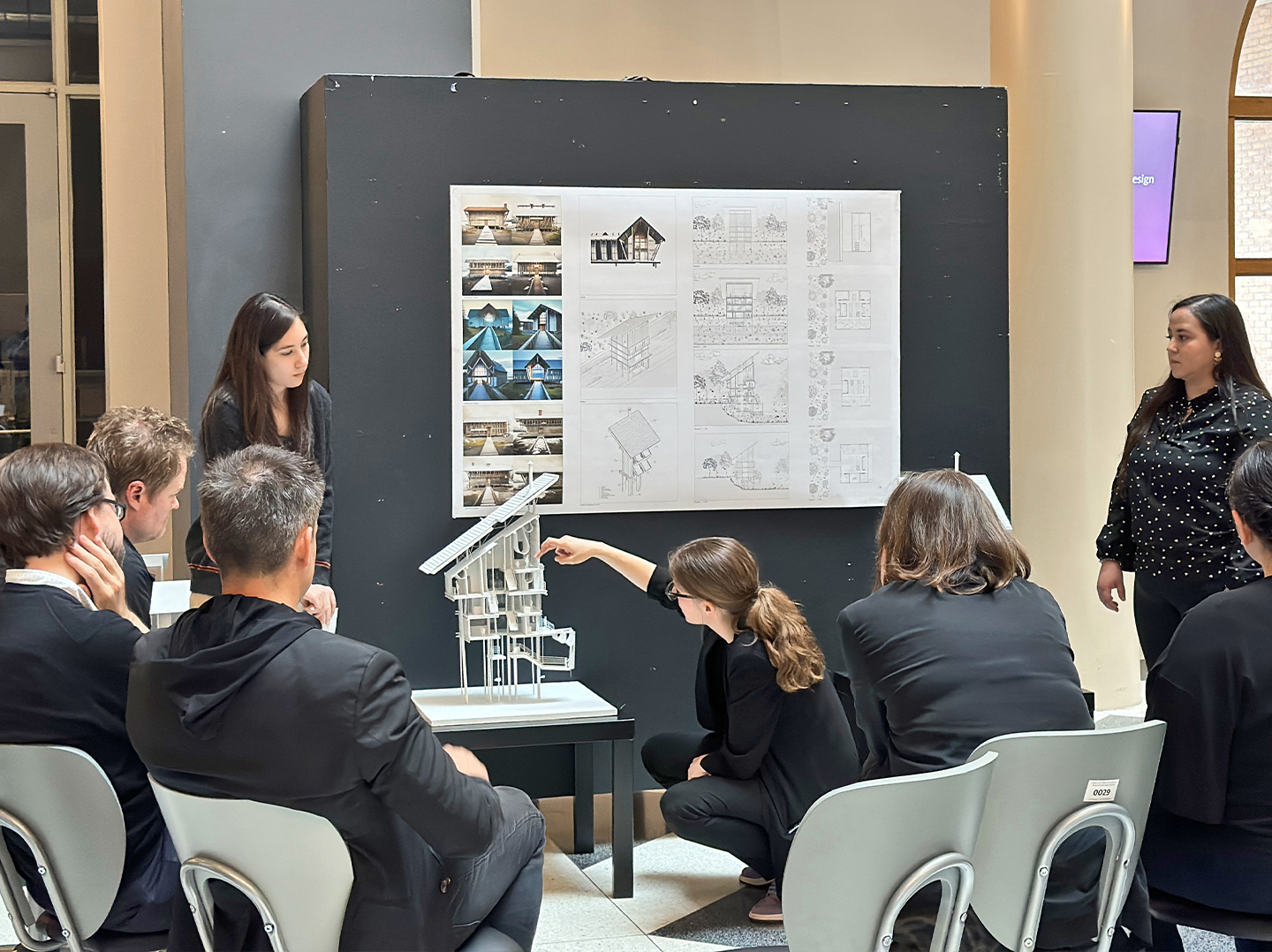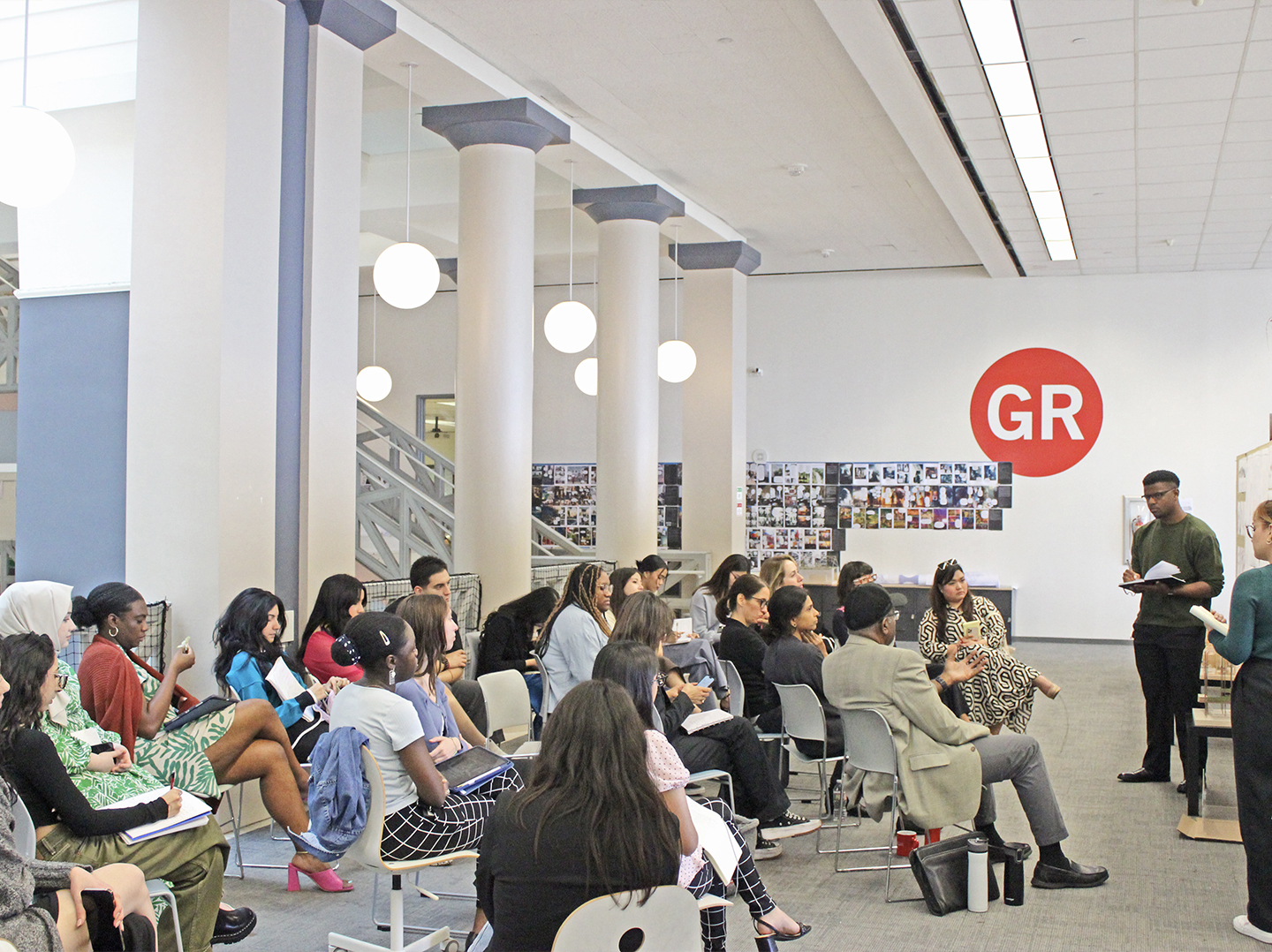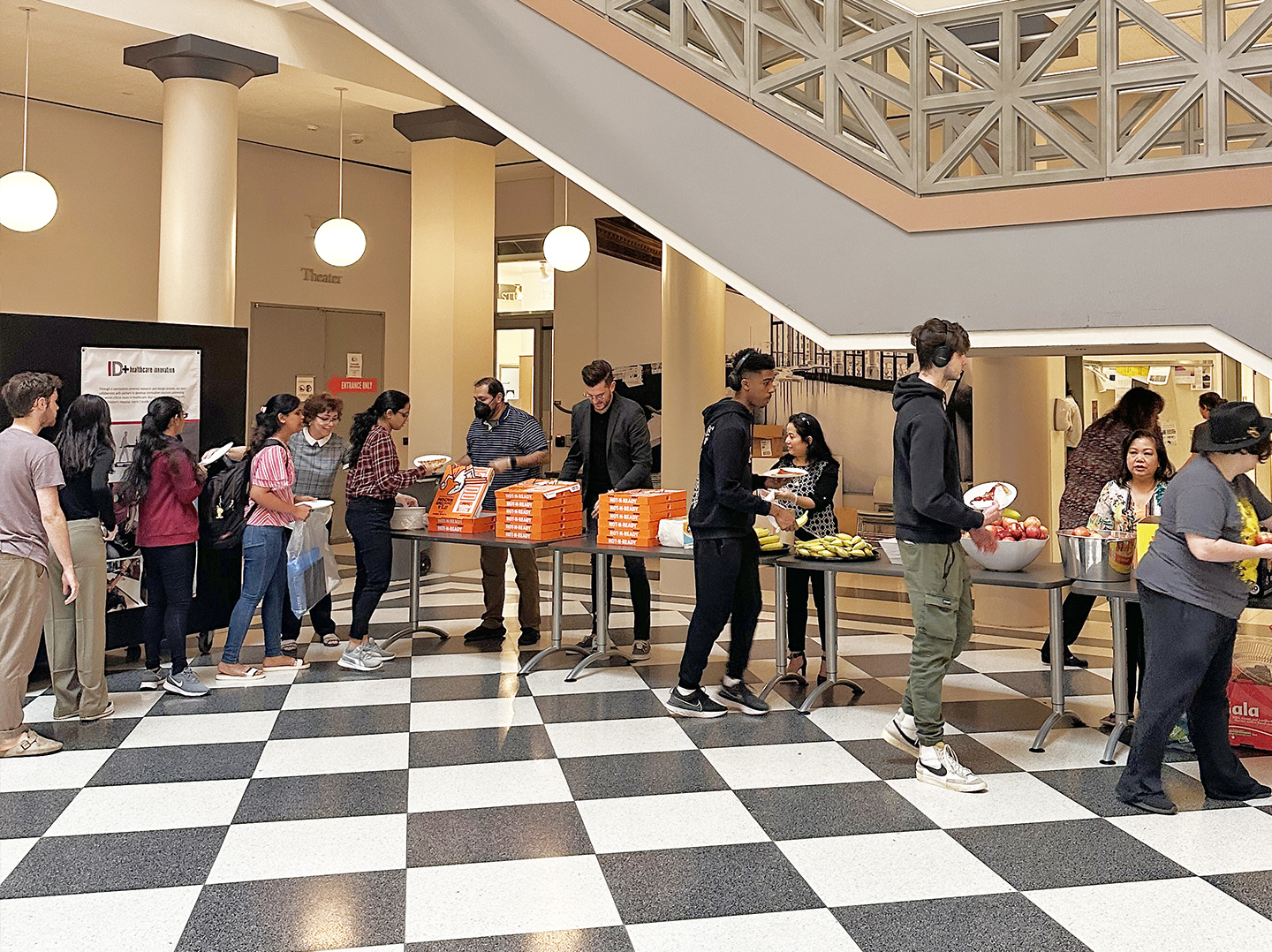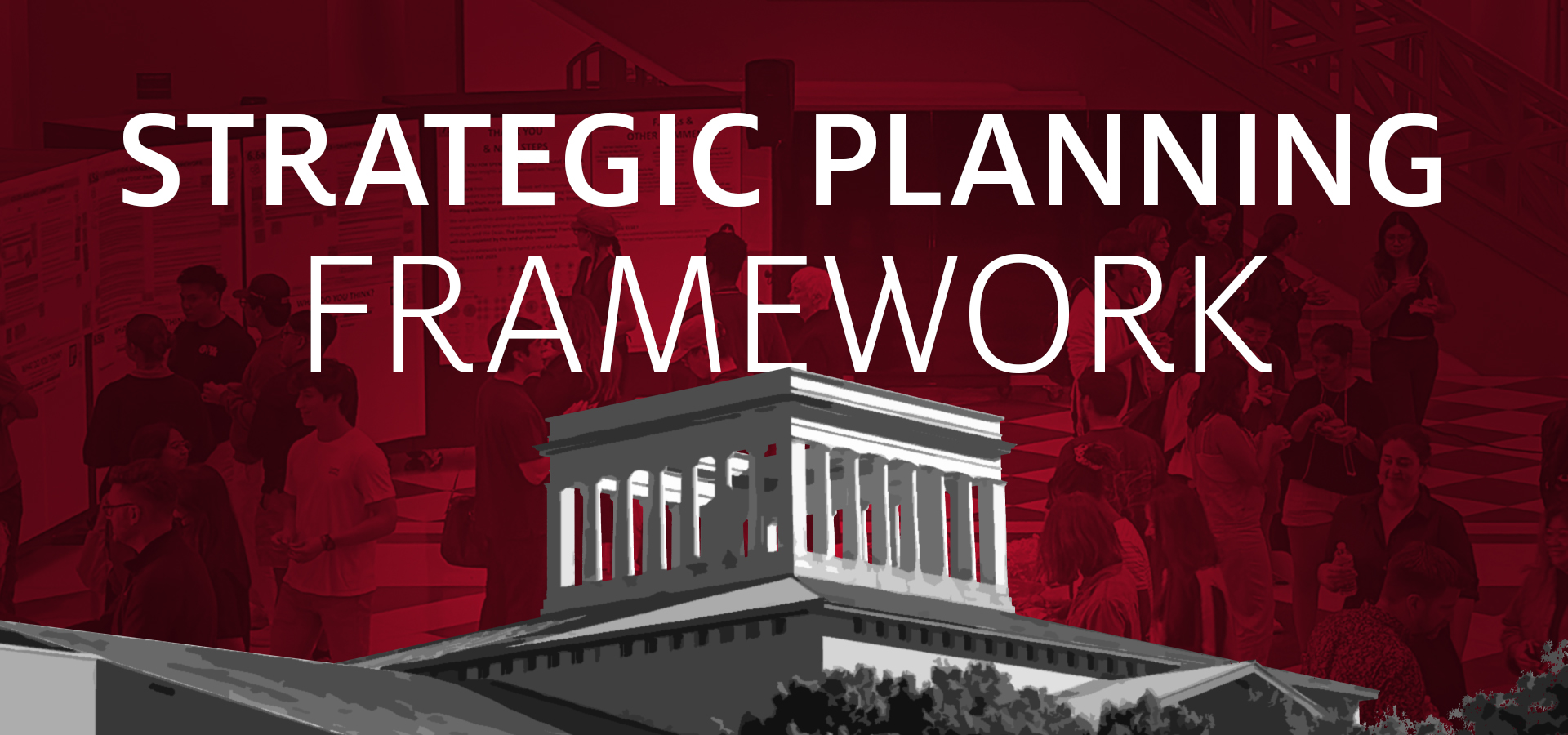
The Framework
Over the course of the 2022-2023 academic year, the Hines College community came together to develop its next strategic plan, incorporating input and involvement from students, faculty, staff, and alumni. The resulting strategic plan framework is our starting point for moving forward and advancing the college over the next several years.
Purpose
The Hines College of Architecture and Design challenges students to cultivate knowledge, creativity, critical thinking, and empathy to be reflective practitioners and design collaborators. We catalyze student potential and utilize design to strengthen our communities and address contemporary issues with action-oriented, innovative solutions to make the Earth a better place to live.
Vision
The Hines College is a leader in holistic, interdisciplinary design education that empowers students to proactively create more sustainable built environments, systems, and objects and to shape the evolving role of the architect/designer. The College develops critical pedagogies, research, and practice to tangibly improve equity, resilience, and other shared challenges through the power of design.
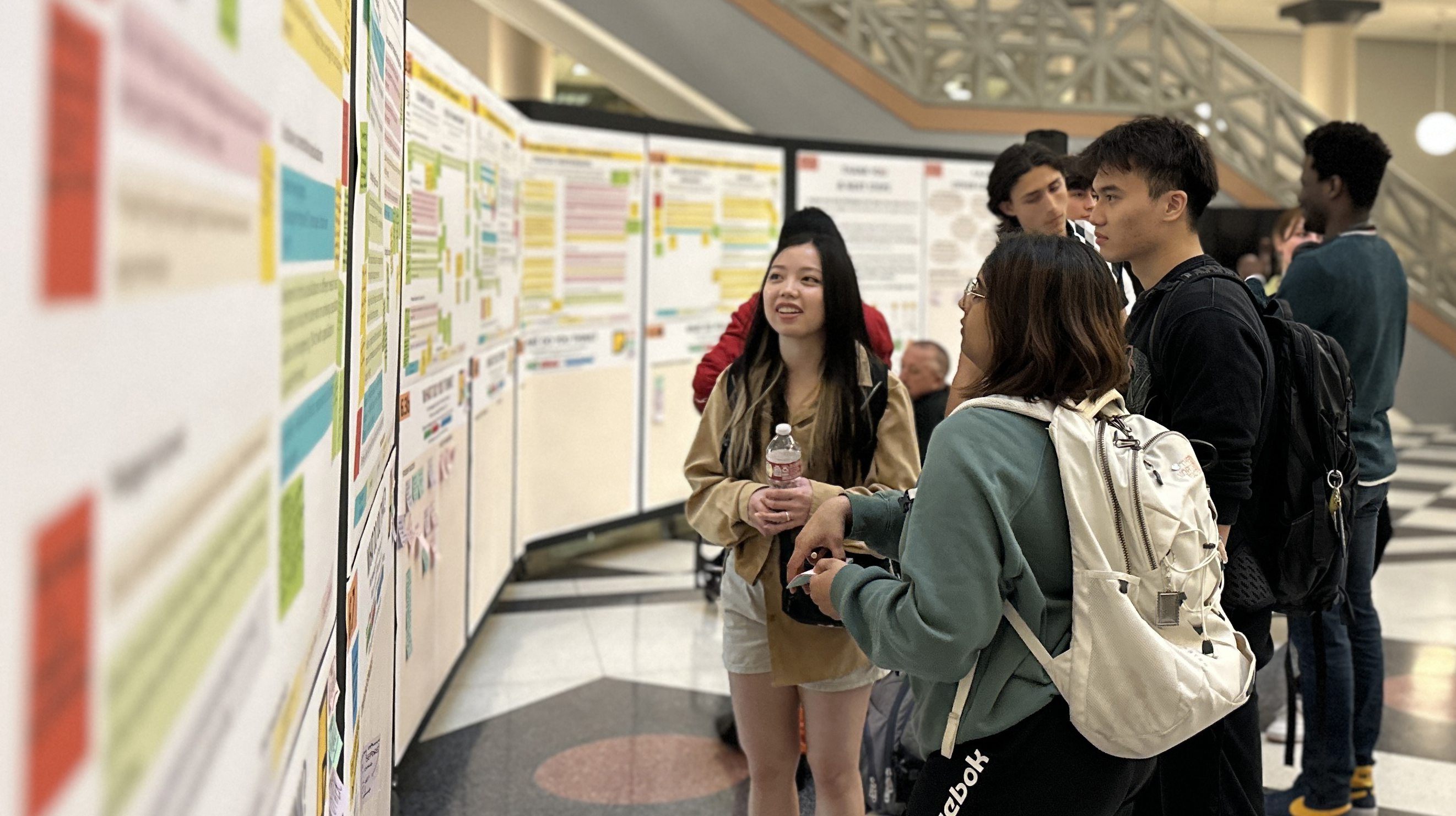
Vision Elements
As designers and change agents of the future, our students will continue to address climate crisis and its disproportionate impact on marginalized peoples. We cultivate our students’ awareness, sensitivity, and curiosity about the communities and cultures they design with and their sense of responsibility for how their work contributes to equity and sustainability.
Cross-pollination between programs emulates the interdisciplinary collaboration that characterizes real-world practice and enables students to succeed as well-rounded critical thinkers and designers, who can implement innovative solutions, evolve the role of the designer, and influence emergent practices.
We engage with design, design media, history/theory/criticism, and technology as they evolve. We leverage emerging tools and concepts for practice and research and equip our students with the skills and critical lens that will allow them to thrive in a rapidly changing environment.
Values
We Believe Statements

Goals
Who Was Involved?
Everyone was invited to get involved in the strategic planning process – including students, faculty, staff, and alumni. Whether a part of the Working Group or providing feedback at open house events and faculty sessions, the process welcomed voices of each person in our College community.
The Working Group was critical in synthesizing the feedback and developing the final strategic plan framework.
-
Administration
- Patricia Belton Oliver – Dean
- Dietmar Froehlich – Associate Dean
- Trang Phan – Associate Dean
-
Directors, Coordinators, + Faculty
Directors:
- Rafael Beneytez-Duran – Director, Undergraduate Architecture
- Gail Borden – Director, Graduate Studies
- Jeff Feng – Co-Director, Industrial Design
- Mark Kimbrough – Co-Director, Industrial Design
- Sheryl Tucker de Vazquez – Interim Director, Interior Architecture
Coordinators:
- Tom Diehl – Co-Coordinator, Undergraduate Technology Sequence
- Matt Johnson – Coordinator, Graduate Module III
- Michael Kubo – Coordinator, History and Theory of Architecture and Design
- Andrew Kudless – Coordinator, Design Media
- Jason Logan – Coordinator, Undergraduate Architecture Foundation Level
- Rafael Longoria - Coordinator, Graduate Module IV
- Patrick Peters – Coordinator, Undergraduate Integrated Architectural Solutions, Coordinator Graduate Design/Build
Faculty:
- Min Kang – Assistant Professor, Industrial Design
- Mili Kyropoulou – Assistant Professor, Architecture
- Ophelia Mantz – Assistant Professor, Interior Architecture
- Ross Wienert – Adjunct Faculty, Architecture
-
Staff Representatives
- Avani Dave – Director, Business Operations
- Stephen Schad – Executive Director, Communications
-
Students + Student Organization Leaders
- Kadmiel Konan – STUCO, Industrial Design
- Mary Garcia Aguilera – AIAS Houston
- Michala Daniels – Interior Architecture
- Aya Daouk – UHNOMAS
- Ashton Ezell – FWIA
- Raymond Fernandez – Undergraduate Architecture
- Marina Latto – SIDSA
- Estelle Lee – Makers and Doers Club
- Tamyria Levy – Undergraduate Architecture
- Regyna Palacios – IASA
- Amber Quinn – Alpha Rho Chi (APX)
- Umaymah Sigbathulla – Graduate Architecture
- Christopher Torres – UHNOMAS
-
Alumni
- Margaret Wallace Brown (’83)
- Andrew Gressett (’16)
- Eric Hudson (’08)
- Jennifer Murray (’22)
- Ledia Osmani Valdez (’06)






